Premium Only Content
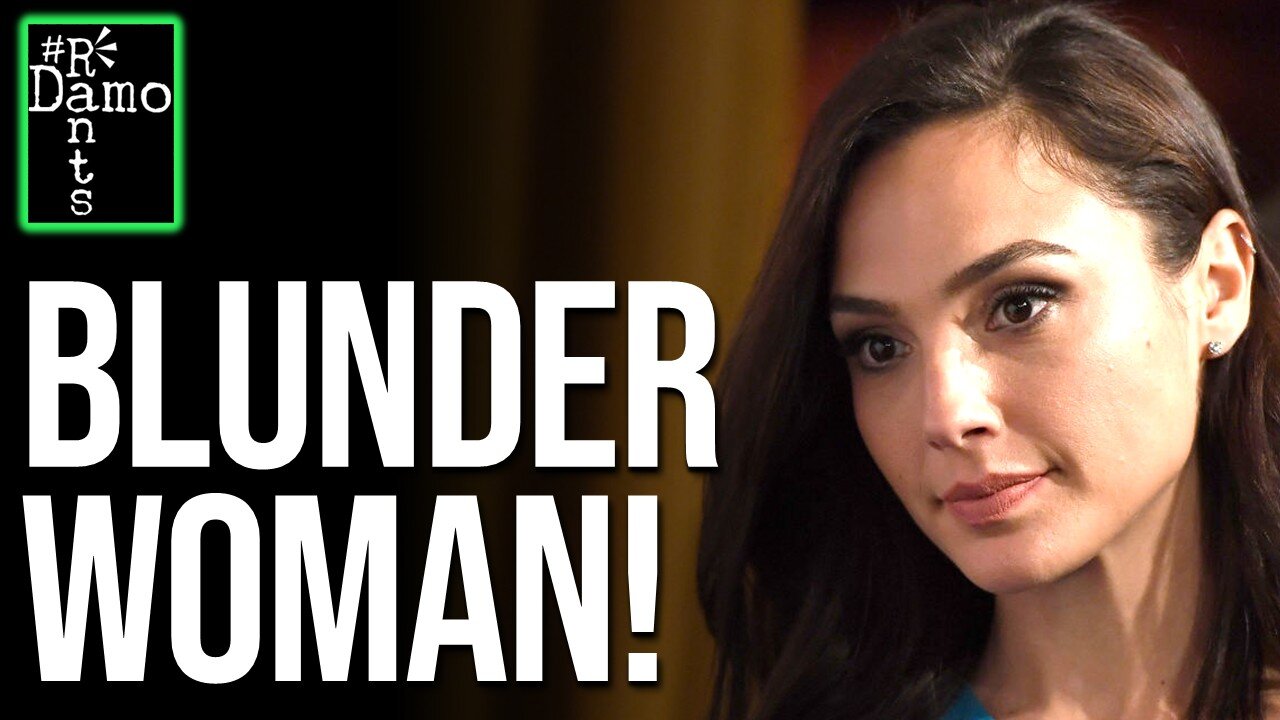
Gal Gadot’s Anti-Protest Nonsense Just Crumbled in Seconds
Right, so imagine trying to haul eight anti-genocide activists into court using a Thatcher-era anti-union law and watching the whole thing collapse before you could squeeze out a single Hollywood tear. That’s what happened here, and it tells you everything you need to know about the state of policing, the state of politics and the state of the “actress” at the centre of it, Gal Gadot, who has spent years defending Israeli violence and then acted surprised – possibly the best performance she’s ever put on - when protests followed her onto a London film set. The police reached for Section 241 — the picket-line law — as if chanting on a pavement were the same as blocking a factory gate, and the case disintegrated the moment the judge looked at it. So the activists walked out vindicated, the law snapped back into place, and the only thing left standing was the embarrassment of everyone who thought they could criminalise protest to protect a celebrity mouthpiece for a state accused of genocide.
Right, so the first thing you say about this case is the thing the state hoped nobody would say out loud: Gal Gadot tried to drag eight Palestine-solidarity activists into court using a Thatcher-era anti-union law, and the entire prosecution collapsed before it even began. Not after months of trial. Not after contested evidence. Not after some dramatic cross-examination. It fell apart at the starting line. And when something this politically loaded disintegrates that quickly, you don’t have to dig for hidden motives or whispered conversations because the structure of the thing exposes itself. Gadot put her name to a prosecution that was always doomed, the police tried to force a square peg through a circular-shaped statute, and the activists paid the price until the law finally saw sense.
And you start with Gadot because she’s the axis here. She isn’t some neutral Hollywood presence who wandered into the wrong protest. She’s spent years positioning herself as one of the most visible cultural defenders of the Israeli state, publicly denouncing ceasefires during the bombing of Gaza, telling her audience they should “support Israel” because of terrorism, and insisting that her Snow White backlash was really about actors being “pressured” to condemn Israel. You don’t get to do all that and then be surprised when anti-genocide activists show up at your film set. She drew protest because she invited it with the politics she chose to amplify. That’s not personal. That’s political gravity.
So when those activists — eight of them — turned up at her London shoot to protest a state accused of genocide, the police didn’t handle it like a routine demonstration. They didn’t even reach for the usual public-order measures. They reached for Section 241 of the Trade Union and Labour Relations Act. That’s the picket-line law. That’s the one designed to break strikes and criminalise workers who persuade other workers not to cross a picket. Don’t be a scab. Well that wasn’t what was happening here. It was never meant for political protest and everybody knows it. But they swung it anyway because the protest wasn’t just against a film; it was against a Zionist celebrity who had made herself synonymous with the state the activists were opposing.
And the moment the police chose that law, the damage was done, but this is how it began. The activists were suspended from their jobs. Their mental health deteriorated. Their home addresses were dumped online by a far-right Zionist group. Police and journalists showed up on their doorsteps. Their lives were turned inside out by a charge that any lawyer could tell you would never make it through a courtroom door. Because Section 241 requires compulsion — actual compulsion. You have to prove that someone was forced or intimidated into abstaining from work. Peaceful political protest doesn’t meet that threshold. Chanting doesn’t meet it. Moral objection doesn’t meet it. And demonstrating at a film set doesn’t turn that film set into a factory gate does it?
Which is why the case died instantly. It didn’t stumble. It didn’t wobble. It just fell apart the moment a judge saw the mismatch between the statute and the real-world conduct. And when a prosecution falls that fast, it exposes everyone behind it. It exposes Gadot for attaching her name to a charge that shouldn’t have existed. It exposes the police for misusing a union-busting law to suppress Palestine-solidarity protest. It exposes the police for bringing a charge that had no realistic prospect of conviction and pushing it forward until the moment it reached a courtroom and collapsed. And it exposes the climate we’re living in, where Gaza solidarity is policed more aggressively than almost any other political position in the UK.
But the collapse doesn’t undo the harm. The suspensions still happened. The doxxing still happened. The mental strain still happened. The intimidation still happened. The months of anxiety still happened. And this is where you see the political function of a failed prosecution: even when it loses, it still punishes. Even when it collapses, it still scars. Even when it dies on contact with the law, it still tells everyone watching that protesting someone like Gal Gadot carries a price.
And that’s why you don’t separate the legal collapse from the political identity of the person who wanted this case in the first place. The activists didn’t target Gadot because of her career. She wasn’t targeted because of the criminality of her acting. They targeted her because she is a global mouthpiece for a state committing mass killing. She didn’t stumble into this. She placed herself inside the political frame, and the protesters responded on those terms. When the state tried to criminalise them on her behalf, the attempt didn’t just fail — it revealed the whole structure around her.
So once you’ve put Gadot back at the centre of the story — not as a passive celebrity but as the political actor she has chosen to be — the rest of the narrative starts to make sense because everything that followed flowed from that choice. The protesters weren’t interrupting a film. They weren’t inconveniencing a production. They were confronting a global figure who has spent years defending the very state they were protesting. Gadot wasn’t just present; she was relevant. She had already aligned herself with a government accused of genocide. She had already used her platform to justify its actions. So when activists set foot on that pavement, they weren’t stepping into a movie set — they were stepping into the political arena Gadot herself helped build.
And that is why the police treated the protest with the kind of hostility reserved for “undesirable” politics. Because this wasn’t about film disruption. This wasn’t about noise. This wasn’t about public order. This was about the content of the protest. Anti-genocide activism has been treated as a threat in the UK for too long now, and when you combine that with a high-profile Zionist figure whose fame carries diplomatic weight, you get policing decisions that make no sense in legal terms but perfect sense in political ones. They didn’t reach for Section 241 because the behaviour demanded it. They reached for it because the target demanded it.
That’s what makes the choice of law so telling. Section 241 is not some dusty old clause that occasionally reappears by accident. It is a surgical tool. It was written to attack union power. It was designed to dismantle picket lines, to crush worker solidarity, to protect employers. It has nothing to do with political protest. And the only way it could be applied here was if the police pretended that protesters expressing a political position were the same as picketers preventing staff from entering a workplace. That is a category error so blatant that calling it a mistake feels generous.
So you look at the consequences. You look at the eight activists who found themselves dragged into a process built on that nonsense. People lost jobs. People suffered mentally. People were harassed. Their addresses were plastered online by a far-right Zionist organisation whose entire existence revolves around suppressing criticism of Israel. Their families were thrown into panic. Their sense of safety disappeared. And all of it stemmed from a charge that any competent lawyer could have dismissed on day one. That’s the point: it didn’t need to win to do damage. It only needed to exist.
And here’s where Gadot’s role becomes unavoidable. She wasn’t just the backdrop to this. She was the beneficiary. The law was deployed to defend her interests — or rather, the political identity she has spent years cultivating. She is not neutral. She is not apolitical. When she denounced ceasefires during the bombing of Gaza, she became a political actor. When she told her audience they should support Israel, she became a political actor. When she framed criticism of her Snow White film as pressure to condemn Israel, she became a political actor. So when activists protested her, they were engaging in political counter-speech — and the state responded not by managing that dissent but by trying to criminalise it.
And because Gadot is globally recognised, that attempt wasn’t just a local policing decision. It was an attempt to normalise the idea that protest against a high-profile supporter of Israeli policy is something that can be prosecuted, something that can be deterred, something that can be made costly. The state knew exactly who it was protecting because her public stance is no secret. And if this prosecution had survived, it would have sent a message across every protest movement in the UK: challenge the wrong celebrity, challenge the wrong ideology, challenge someone aligned with the wrong state, and you’ll be treated as if you’re interfering with a workplace.
But the reality is that the moment a judge saw the charge, the whole thing disintegrated. The law didn’t fit. The behaviour didn’t fit. The logic didn’t fit. And the collapse didn’t just clear the activists — it exposed the attempt itself. It exposed the willingness to weaponise a union law against anti-genocide protesters. It exposed the political sensitivity around Gadot. It exposed the extent of the suppression that Gaza solidarity activists now face. It exposed how far the police were willing to go to shield a Zionist celebrity from criticism.
And this is precisely why the collapse is humiliating for Gadot. She didn’t bring the law. She didn’t sign the charge sheet. But her name is inseparable from the attempt because without her political persona, none of this would have happened. The activists weren’t protesting a camera. They were protesting her ideology. And when the state tried to use the law to silence them, it wasn’t protecting art — it was protecting the politics she represents.
So the collapse doesn’t just clear the activists. It indicts the entire attempt. It shows that even in a country where protest rights are shrinking, even when the target is a global defender of Israeli power, the law still has limits. And the collapse throws those limits into sharp relief.
So now you move from the mechanics of the collapse to the political cost, because that’s where the weight of this story really sits. This isn’t just a failed prosecution. It’s a failed prosecution attached to one of the most recognisable Zionist celebrities on the planet, and when a legal attempt like this falls apart instantly, it drags her political image right down with it. Gal Gadot didn’t just happen to be filming nearby. She was the reason the protest happened. She was the reason the police were involved. She was the reason Section 241 was dragged out of the Thatcher-era toolbox. Everything that spiralled out from that moment spiralled because of her public stance, and it landed where it landed because the state decided her brand was worth defending.
And here’s the thing about celebrity: it amplifies everything. It amplifies the protest. It amplifies the policing decision. It amplifies the fallout. So when eight activists protesting genocide were bundled into a months-long legal nightmare, the presence of Gadot turned it from local repression into something global. The state wasn’t defending an anonymous person. It was defending someone who has gone out of her way to amplify Israeli state messaging. And the more visible she is, the more visible the collapse becomes, because the entire attempt was built around the idea that protest against her political stance should be criminally punishable.
But the prosecution exposed something else too, and this is the part that will stick: the state was willing to go to extraordinary lengths to silence dissent because the target was a Zionist figure. That’s why Section 241 was used. That’s why the activists were treated like a threat. That’s why the consequences were so severe. And that’s why the collapse is such a slap in the face to everyone who tried to push this through. The law didn’t break in the activists’ favour; it held exactly where it was supposed to hold. The collapse isn’t a loophole. It’s the law functioning the way it’s meant to function when someone tries to distort it for political purposes.
And you can see that distortion clearly when you look at how far the consequences spilled out. The doxxing didn’t come from the state, but it came because the activists were cast as criminals. Their workplaces didn’t suspend them because they cared about the law; they suspended them because the stigma of being charged in a high-profile case involving Gal Gadot created panic. Their mental health didn’t collapse because of a courtroom process; it collapsed because the system kept them in limbo for months for a charge that shouldn’t have survived a minute. The harassment wasn’t incidental. It was part of the ecosystem that springs up whenever Palestine solidarity is targeted.
And that ecosystem is shaped by people like Gadot. That’s what her defenders never want to hear. When you spend years using your fame to justify a state’s violence, that fame carries consequences. It brings protest. It brings scrutiny. It brings backlash. And when you then act as if protest against your politics is some kind of personal violation, you’re denying the reality that you created. Gadot didn’t become a lightning rod by accident. She made herself one with every statement she made about Gaza, every defence of Israeli military action, every attempt to reframe criticism as hostility to Israel itself. So when activists showed up, they were following the logic she set in motion.
And when the state tries to silence those activists on her behalf, the collapse becomes a public verdict not just on the policing decision but on the politics behind it. And this is where Gadot takes the biggest hit, because the collapse shows that the law can’t be bent to suit her ideology. It shows that no amount of celebrity can override the basic requirements of criminal prosecution. It shows that being a publicly Zionist figure doesn’t entitle you to state protection from legitimate dissent. And because she is globally recognised, that message doesn’t stop in London. It travels.
Which brings you to the bigger picture: if this prosecution had succeeded, it would have set a precedent that no protest movement could afford to ignore. It would have transformed political dissent into a workplace obstruction offence. It would have allowed police to criminalise any protest held near any workplace simply by claiming there was “interference”. Imagine what that would have done. Protest outside media offices? Criminalised. Protest outside arms factories? Criminalised. Protest outside constituency offices? Criminalised. The stakes weren’t small here. They were foundational.
And that’s why the collapse matters far beyond these eight activists. It blocked a quiet attempt to redraw the boundary between dissent and crime. And the fact that this attempt was made on behalf of a Zionist celebrity makes the whole thing even more revealing, because it shows you exactly what kind of protest the state is willing to suppress most aggressively. Gadot’s political persona didn’t just attract protest; it triggered an institutional response that was disproportionate, legally incoherent and politically telling.
And in the middle of all this, the activists didn’t budge. They said exactly what they meant. They protested exactly what they came to protest. They called Gadot what she is — a mouthpiece for a state carrying out mass killing — and they didn’t retreat from that because the state threatened them. When the case collapsed, they didn’t celebrate politely; they said it plainly: they won, the movement won, and the people who tried to criminalise them failed.
And they’re right. The people who failed weren’t the protesters. They were the ones who tried to stretch the law far enough to bury them — and snapped it instead.
So when you reach the end of this story, you’re not looking at a legal mishap anymore. You’re looking at a political failure with a celebrity’s name stamped right across the front of it. Gal Gadot didn’t assemble the police teams or choose the statute, but everything that happened here happened because of who she is and what she represents. When you walk into public space as one of the loudest celebrity defenders of Israeli state violence, during a period when Gaza has been torn apart and the world is watching, you attract protest. That’s politics. That’s consequence. And when the state tries to use an anti-union law to silence the people protesting you, the collapse of that attempt becomes part of your story whether you want it or not.
And that collapse is damning. It shows that even in a climate where Gaza solidarity is being treated like a national security issue, even in a moment where pro-Israel voices receive reflexive institutional protection, the law still has limits that fame and ideology can’t erase. Section 241 was never going to stick. It couldn’t turn chanting into compulsion. It couldn’t turn a film set into a picket line. It couldn’t turn political dissent into criminal interference. The state reached too far because the target was too politically sensitive, and the moment the case hit a courtroom, the whole thing dissolved.
But the collapse doesn’t cancel the months of punishment these activists went through. The suspensions still happened. The doxxing still happened. The fear still happened. The mental-health crises still happened. The intimidation still happened. That’s the thing about state overreach: even when it loses, it extracts something from the people it targets. And when the target is anti-genocide activists protesting a Zionist celebrity, that extraction is political. It’s a warning shot. It’s the machinery of suppression doing its work before the law gets a chance to correct it.
And that’s why the collapse matters — because it stops that machinery from setting a legal precedent that would have gutted protest rights in this country. If the prosecution had survived, it would have put every activist within reach of a charge designed to break unions. It would have criminalised dissent wherever work is happening, which is almost everywhere. And it would have done it on behalf of a celebrity whose politics align with a state facing allegations of genocide. That’s how serious this was.
But the court said no. The law snapped back. And Gadot, who started this chain reaction by bringing her ideological stance onto a public film set and responding to protest with a legal sledgehammer, now finds her name tied to one of the most embarrassing collapsed prosecutions the UK has seen in years. She didn’t get the silence she wanted. She got the opposite. She got the story of her failure broadcast instead.
So you finish where the evidence leads you: the activists didn’t cross a line. They protested violence. They protested ideology. They protested a public figure who uses her fame to excuse state brutality. The ones who crossed a line were the people who thought they could twist the law far enough to criminalise them. They tried. They failed. And the failure is now part of the public record.
The verdict therefore is simple: it wasn’t the protesters who overreached — it was the ones who thought Gal Gadot’s politics entitled her to protection from dissent, and the law refused to play along.
Where a Zionist ‘actress’ is implicated in the setting up of some anti-genocide activists though, similar can be said of Israel itself, in a recent incident not with activists per se, but with a state just as vociferous in calling out their atrocities and like Gadot, they’ve ended up with egg on their face as well, so get all the details of that story here.
Please do also hit like, share and subscribe if you haven’t done so already so as to ensure you don’t miss out on all new daily content as well as spreading the word and helping to support the channel at the same time which is very much appreciated, holding power to account for ordinary working class people and I will hopefully catch you on the next one. Cheers folks.
-
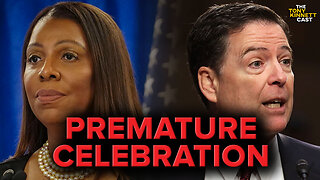 1:19:32
1:19:32
The Daily Signal
5 hours ago $1.05 earned🚨BREAKING: James Comey & Letitia James NOT "Off the Hook" on Indictments, Sen. Kelly Court Martial?
591 -
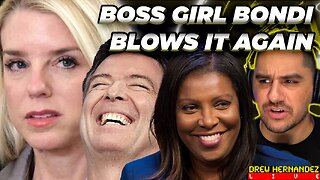 LIVE
LIVE
Drew Hernandez
20 hours agoBONDI DOJ BLOWS IT ON COMEY/LETICIA INDICTMENTS?!
796 watching -
 UPCOMING
UPCOMING
PandaSub2000
4 days agoLIVE 10:30pm ET | CARMEN SANDIEGO
175 -
 12:10
12:10
Robbi On The Record
1 day ago $0.43 earnedKarmic Disclosure and Predictive Programming
4042 -
 4:57
4:57
Gamazda
2 hours ago $0.21 earnedAerosmith - Dream On (Piano by Gamazda)
1624 -
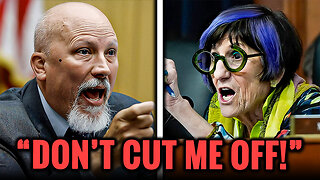 8:12
8:12
Freedom Frontline
5 hours agoChip Roy DESTROYS Democrat After She Explodes Over Shutdown Truth
96 -
 LIVE
LIVE
We Like Shooting
14 hours agoWe Like Shooting 638 (Gun Podcast)
124 watching -
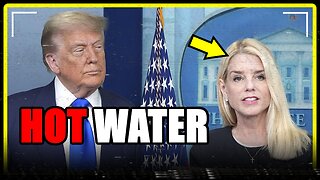 46:09
46:09
MattMorseTV
2 hours ago $12.61 earned🔴Bondi just DROPPED the BALL... BIG TIME.🔴
8.69K73 -
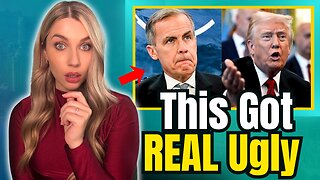 23:57
23:57
Jasmin Laine
6 hours agoCarney SNAPS at Reporters—MOCKS Trump and it BACKFIRES IMMEDIATELY
4.06K21 -
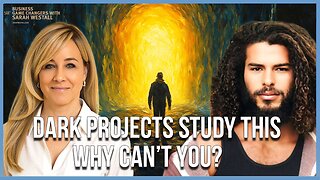 1:04:42
1:04:42
Sarah Westall
3 hours agoDo Near Death Experiences Provide a Glimpse into Reality? w/ Darius Wright
4.17K1